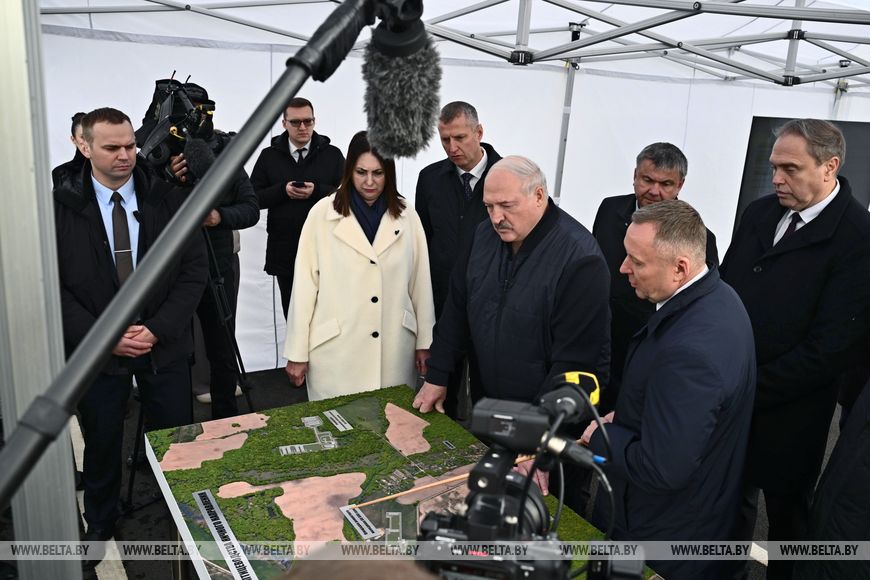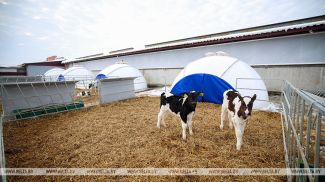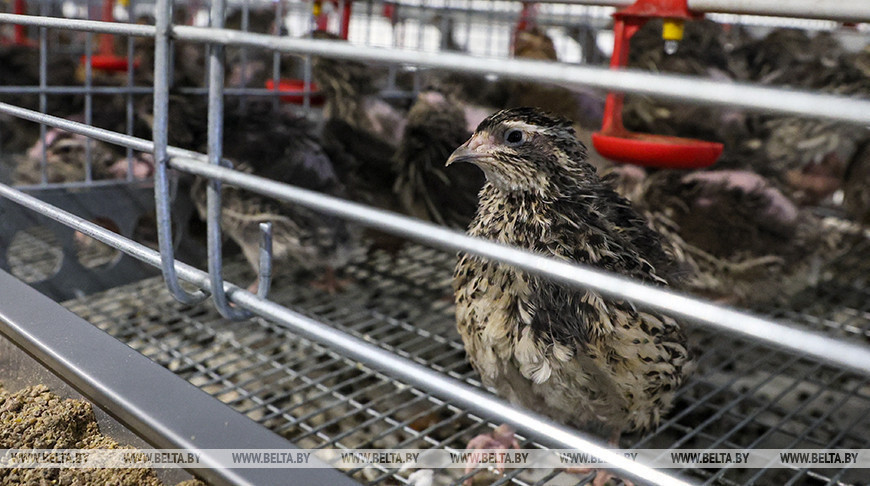
SOLIGORSK, 3 October (BelTA) – Belarusian President Aleksandr Lukashenko was briefed on issues of import substitution in poultry farming at a government conference at the Soligorsk Poultry Farm, BelTA has learned.
At present, a key challenge for the domestic poultry industry is its dependence on imports of day‑old grandparent and parent stock.
Belarusian Agriculture and Food Minister Yuri Gorlov reported that poultry meat accounts for 38% of total meat production in the country. In the meat poultry sector, grandparent stock is purchased abroad and supplied to the Broiler breeding facility of Dzerzhinsky Agrokombinat. “There we produce 2 million heads of parent stock, which is 56% of the total national requirement,” the minister said.
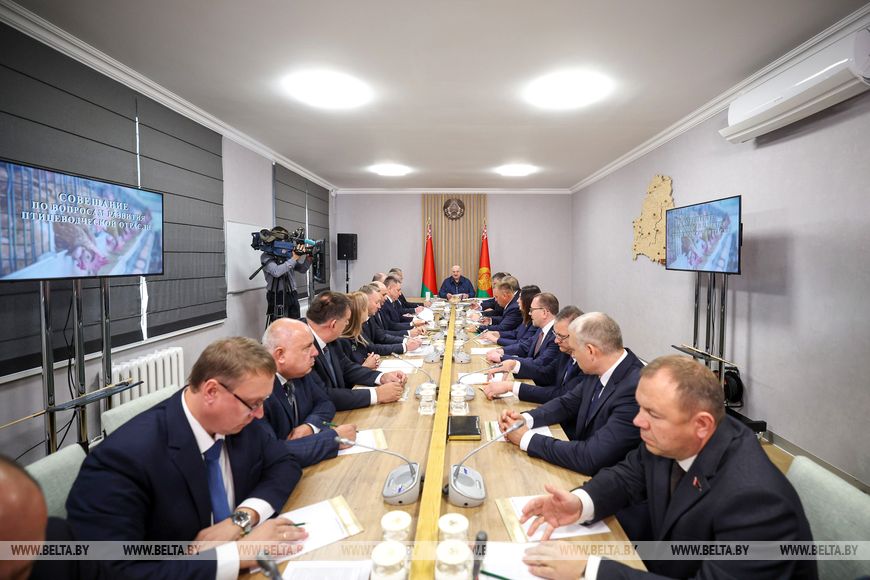
Thus, the remaining 44% of the parent stock is still imported, although these 1.5 million heads could be produced domestically. In order to achieve this, another first‑order breeding facility needs to be constructed. “It would be a small facility consisting of just two buildings. This would allow us to produce 3.5 million head of parent stock within the country,” Yuri Gorlov explained. “Today, the cost of one chick produced domestically is €5.2. We buy them from abroad at €6.2. That means we overpay €1 per chick. If we could produce them domestically, we would save €1.5 million for 1.5 million chicks,” the minister emphasized.
In this regard, Aleksandr Lukashenko inquired about the cost of the project. He was informed that around Br20 million would be required for its implementation, including equipment.
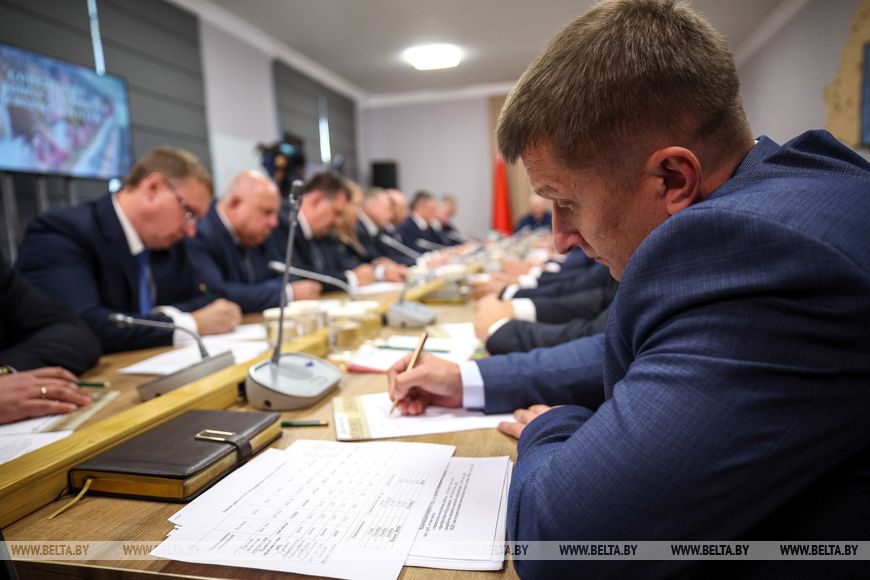
“At most, $7 million. Or we could even manage with five,” the head of state said.
“Do we need this in the near future or are we not yet ready to operate it once it is built? If it was available tomorrow, would you be able to use it? Do our factories need it?” Aleksandr Lukashenko asked.
The response was affirmative. Moreover, the minister noted that this would not only reduce reliance on imports but also help prevent and minimize diseases. The import of breeding and hybrid chicks from various sources threatens the veterinary well‑being of enterprises, since each delivery of birds carries the risk of introducing new infections.
During the visit to the Soligorsk Poultry Farm, the discussion also touched on the possibility of cooperation between Belarusian and Russian scientists in poultry farming. Belarus has made notable progress in egg production, while Russia has a strong expertise in meat production. This provides a solid foundation for mutually beneficial cooperation.
“We need to exchange experience in these areas. Quid pro quo, in other words. It’s beneficial for them,” the head of state said.
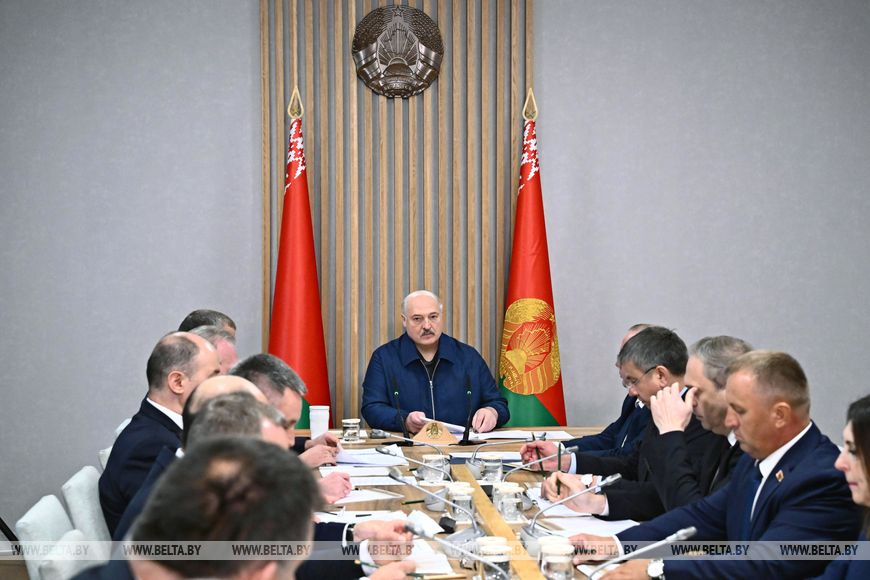
Director General of Dzerzhinsky Agrokombinat Vladimir Lukyanov reported on the progress of an investment project to establish a poultry breeding and genetics center focused on egg production. Currently, there are no similar projects in the post‑Soviet space, and many new technologies are being applied there. Domestic breeders have already come close to the world’s best indicators for laying hen productivity, even though ideal conditions have yet to be created. “By 2029-early 2030, we will have produced grandparent stock,” Vladimir Lukyanov said.
All this will not only cover Belarus’ needs for egg‑production chicks, but also open up opportunities for cooperation with foreign partners. Russia has already expressed interest in the project and is ready to sign contracts.
“We must look ahead to ensure that we have our own supply of eggs and meat,” Aleksandr Lukashenko emphasized.
